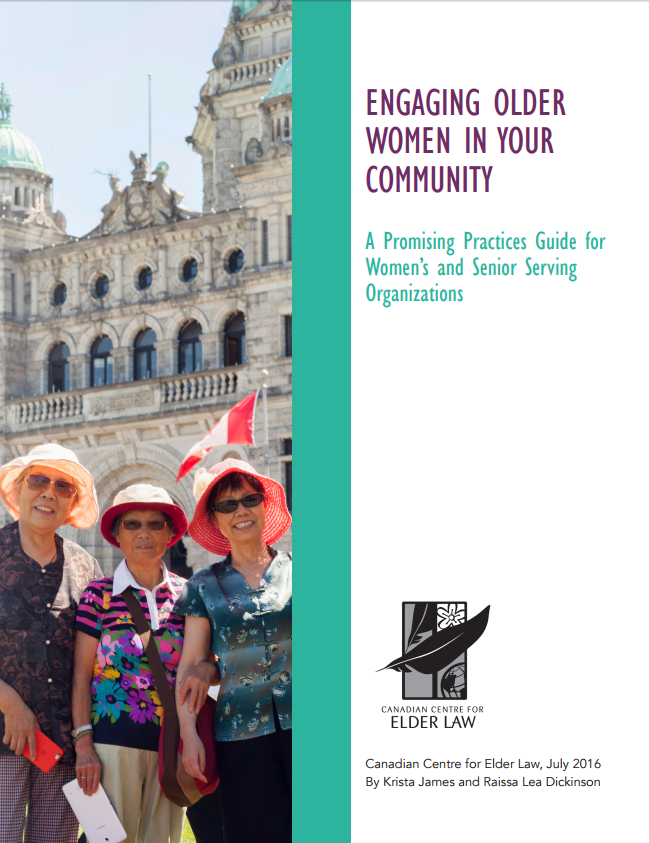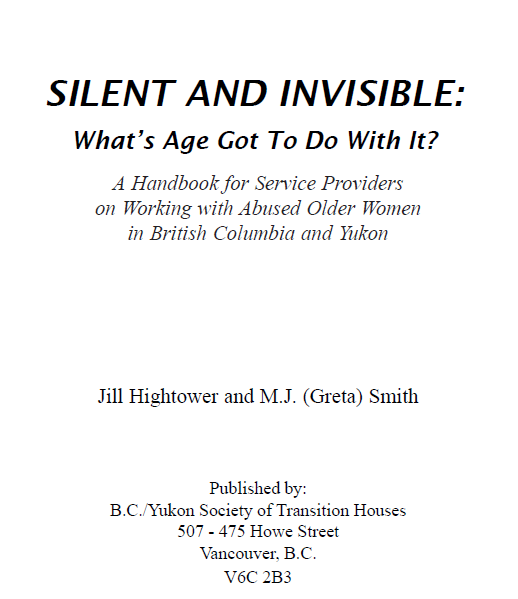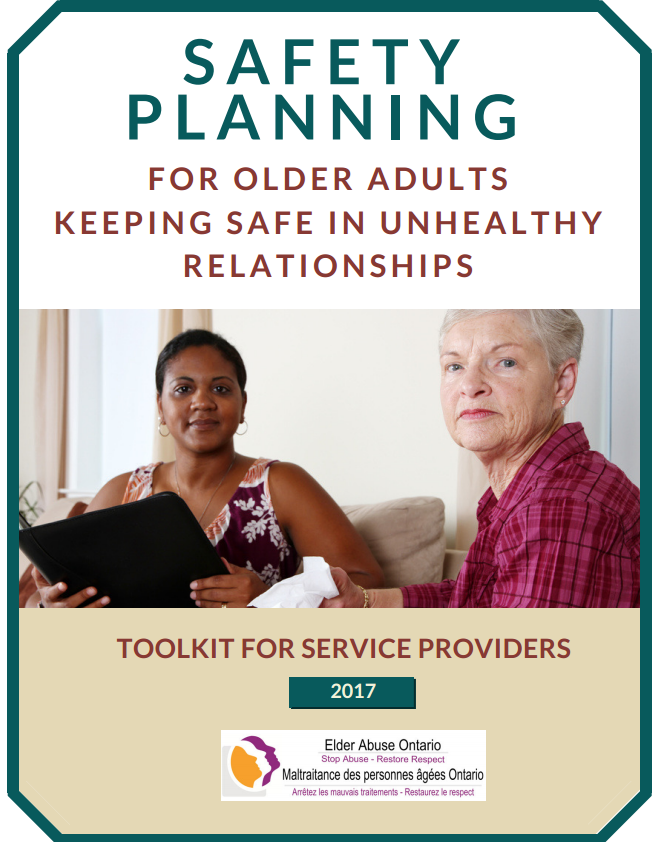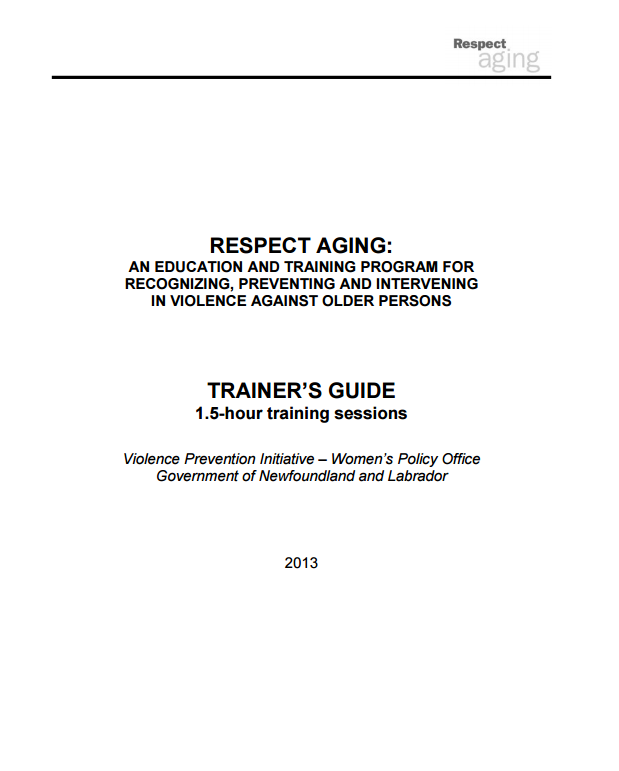
This guide identifies strategies for engaging older women in meaningful, older womenled volunteering as a method to combat systemic inequalities against older women, and support the leadership potential of older women. The guide will be useful to staff working in the women’s sector, seniors sector, and volunteer organizations, and also to practitioners working in research, community development, program development, policy, and law reform, and in general, for anyone working with older women in Canada."
Source: Canadian Centre for Elder Law
The following resource is part of the Family Violence Initiative, funded by the Department of Justice Canada. Find similar tools by searching for the FVIF tag or consult the list of available resources.

"Spousal abuse of women over fifty is often relegated by academics and administrators into the all-enveloping category of Elder Abuse rather than understood as being part and parcel of the whole spectrum of violence against women and their children. Some of the challenges faced by service providers are not new. They are the old challenges newly recognized by an ageing generation.Contributing to the lack of knowledge and understanding for service providers on the issue of detecting violence and abuse of older women versus elder abuse is the reluctance of women to disclose, coupled with the expectation that older people are expected to decline in their later years."
Jill Hightower and M.J. (Greta) Smith
Source: B.C./Yukon Society of Transition Houses, 2005 (now B.C. Society of Transition Houses)
The following resource is part of the Family Violence Initiative, funded by the RCMP. Find similar tools by searching for the FVIF tag or consult the list of available resources.

The toolkit provides:
- key facts and statistics on abuse and violence in later life
- tips on how to recognize the warning signs of unhealthy relationships or abusive partners
- action steps for an older adult
- personal safety including making a personalized safety plan
- contact information on programs and services
This toolkit provides information only, it is recommended that older adults contact a local agency for support.
They can also call Victim Services or the Seniors Safety Line at 1-866-299-1011 for a customized safety plan."
Related materials:
Recorded webinar - Supporting Older Adults to Create A Safety Plan
Source: Elder Abuse Ontario
The following resource is part of the Family Violence Initiative, funded by the RCMP. Find similar tools by searching for the FVIF tag or consult the list of available resources.

Related material:
- Respect Aging Brochure;
- A Trainer's guide (3hr training session) and Participant's guide can also be found at the link below.
Source: Respect Aging

- To raise awareness among nurses of the change in the federal law, which now permits MAID in certain circumstances and within regulatory direction.
- To guide nurses in reflecting on ethical issues that may occur as they care for persons considering MAID in various practice settings.
- To reinforce sound ethical nursing practice.
- To outline the role of nurses (i.e., NPs as compared to registered nurses, licensed practical nurses and registered psychiatric nurses) in MAID and to support nurses in their practice as they work with persons6 considering and receiving MAID and their families and interprofessional health-care teams (in alignment with regulatory direction in relevant jurisdictions).
- To raise the visibility of the profession’s contribution to end-of-life care decision-making and care that includes MAID.
- To be a resource that supports nurse regulators, clinical nurse leaders, administrators/employers and interprofessional health-care teams to develop policies, guidelines, processes and services which use the knowledge and skills of nurses appropriately to provide or aid in MAID.
- To be a nursing resource for entry to practice and continuing education on MAID.
Page 21 of 31

















